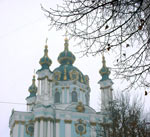NATO-Ukraine Joint Working Group on Defence Technical Cooperation meets in Kyiv
Armaments-related issues were the focus of discussions at a meeting of the NATO-Ukraine Joint Working Group on Defence Technical Cooperation, which took place in Kyiv on 22 May.
The Joint Working Group is responsible for promoting cooperation in the areas of armaments, research and technology, air defence, air space management, standardization and consultation, command and control.
This was the sixth meeting of the Joint Working Group on Defence Technical Cooperation and it was judged to be the best to date. Key issues discussed ranged from reviewing Ukrainian participation in various groups under the auspices of the NATO’s Conference of National Armaments Directors, to receiving an update on the progress being made towards destroying surplus, unserviceable or unsafe munitions, small arms and light weapons, and man portable air defence weapons (MANPADS).
The excellent level of participation of Ukraine in NATO's research and technology activities was also highlighted (only one Partner country is more active in this area, namely Sweden).
Modernisation programmes
Like most nations, Ukraine has programmes to modernise their weapons systems and military equipment. The Joint Working Group on Defence Technical Cooperation was briefed on these plans – in particular, plans to modernise the MIG-29, the goal of which will be improved effectiveness and greater interoperability with NATO forces.
Defence industry is an important partner in efforts to develop and field weapon systems and other military equipment. Ukraine is developing a plan to undertake a review of their defence industrial complex. The group will offer advice, as appropriate, in the development of this plan.
The Joint Working Group on Defence Technical Cooperation meets twice a year, once in Ukraine and once in Brussels, under the joint chairmanship of Ukrainian Deputy Minister of Defence, Volodymyr Tereschenko (National Armaments Director), and NATO’s Deputy Assistant Secretary General for Armaments, Mario Bartoli. It brings together NATO staff with members of the Ukrainian Ministries of Defence, Foreign Affairs and Industrial Policy, National Security and Defence Council, Secretariat of the President, and the General Staff of the Armed Forces. It supports objectives set out in the NATO-Ukraine Charter, Action Plan, Annual Target Plans and the framework for Intensified Dialogue.
The next meeting of the group will be in Brussels in October or November 2007.

